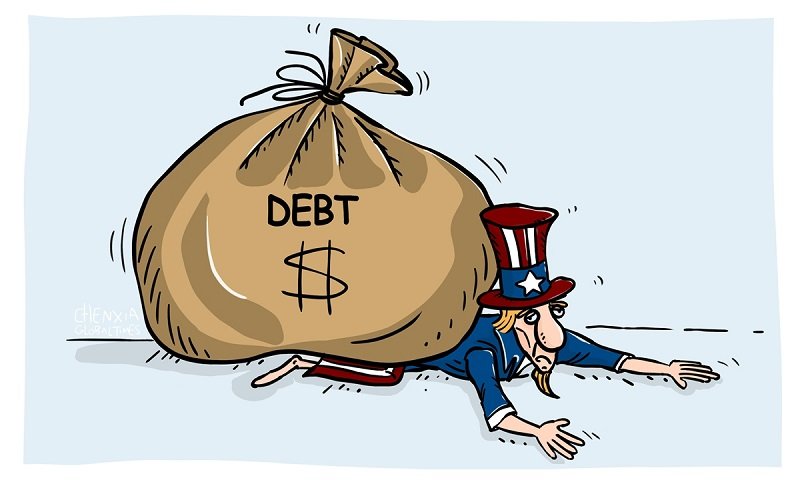Having debt feels like carrying extra weight that you can’t escape. Debt affects your finances, but it can also cause stress, leading to chronic health conditions, divorce, and overall, lower quality of life.
If you’re worried you’re about to head down the slippery slope of debt, we’re here to help. Here are five simple but effective ways you can get a better grasp on your finances.
1. Don’t look at credit cards as “free” money
The quickest way to get into debt is by thinking a credit line is “free” or “extra” money. Too often, people will view credit as an extension of their income. In actuality, credit is a loan to buy the things you want or need today that’s taken from your future earnings.
By reframing your mindset about how much money you have available, you’ll be able to stay away from living outside of your means and getting into debt.
2. Have a dedicated emergency fund
Having a savings account set aside solely for emergencies can help prevent you from getting into credit card debt. You can use your credit cards to pay for sudden, unplanned expenses, but be sure that your emergency fund pays off that credit card balance quickly.
If you don’t yet have an emergency fund, start one today. Create a new savings account (preferably with a bank that has no minimum balance requirement) and transfer 10% of every dollar you make. It can be from your paycheck, birthday cards from Grandma, or even found money on the street. Whatever comes in, 10% needs to go into saving for emergencies.
Start with a goal of $1,000 since that will most likely cover any emergency until your next payday. After that, shoot for acquiring anywhere from three to six months worth of expenses in your emergency fund. Don’t get a debit card or paper checks attached to this account, but make sure you have transfer capabilities to your checking account. You want the emergency fund to be difficult, but not impossible, to access.
3. Pay off your credit card balances in full every month
Paying interest on credit card balances just increases the cost of your purchases without any additional benefit. Don’t fall into the mindset of accepting interest as an ordinary expense. Pay off your credit card balances in full every month so that you’re not stuck with any extra fees.
If you cannot pay off your balances in full, start knocking out your debt as quickly as possible. Try using the debt snowball approach, as it’s one of the easiest ways to dig your way out of a bad financial situation.
4. Limit the number of credit cards you have
The more bills you have, the more difficult it will be to spread your money around to pay them off in full. Having multiple cards makes your finances more difficult to keep track of, so stick to using only one or two cards for your normal spending.
Related News:-
What to do if you’re Struggling with Debt
While it might feel nice to drop down a premium credit card made of metal, those cards come with hefty annual fees that aren’t worth it for the majority of cardholders. Unless you can cancel out the yearly fee with the perks offered, it’s best to stick with $0 annual fee cards instead.
5. Keep a budget and track your spending
It’s difficult to understand your spending habits if you don’t track them and this can be an easy way to get into debt. Set a budget that details your regular purchasing habits and track every cent that leaves your bank account. Remember that budgeting doesn’t mean having to get rid of your daily coffee run; it simply means accounting for that expense every month.
Above all, the easiest way to stay out of debt is to spend less than you earn. By using these five steps, you’ll not only ensure you’re not overspending but will also be able to save for the future and have a better quality of life.


